How Beaches Are Affected By Overtourism
The beach is the perfect destination for those seeking to relax and escape the stress. The popularity of beaches as an ideal getaway leads to overflowing masses that visit beaches every year, putting the coastal and marine environment at risk. This not only happens in popular locations, overtourism affects local beaches we choose for short holidays. There are small and large changes we can implement to protect our beaches and prevent them from closing. Check them out!!
To receive the Luxiders newsletter, sign up here.
Overtourism emerged as a matter of public concern due to its impacts on urban areas and its threatening effect on social sustainability in cities like Barcelona, or Venice. The problem is not acute to overcrowded cities but also pronounced in paradisiacal locations like Maya Bay in Koh Phi Phi Island, Thailand. The movie The Beach, featuring Leonardo DiCaprio, made the beach famous. Its gained popularity subjected Maya Bay to overtourism. The Guardian predicted that over 5000 visitors and 200 boats per day, and pollution from litter and sun cream destroyed around 80% of coral around Maya Bay. While the phenomenon is more evident in famous locations like Maya Bay, the shores of Rio de Janeiro or Majorca, the issues extend to affect most beach vacation spots.
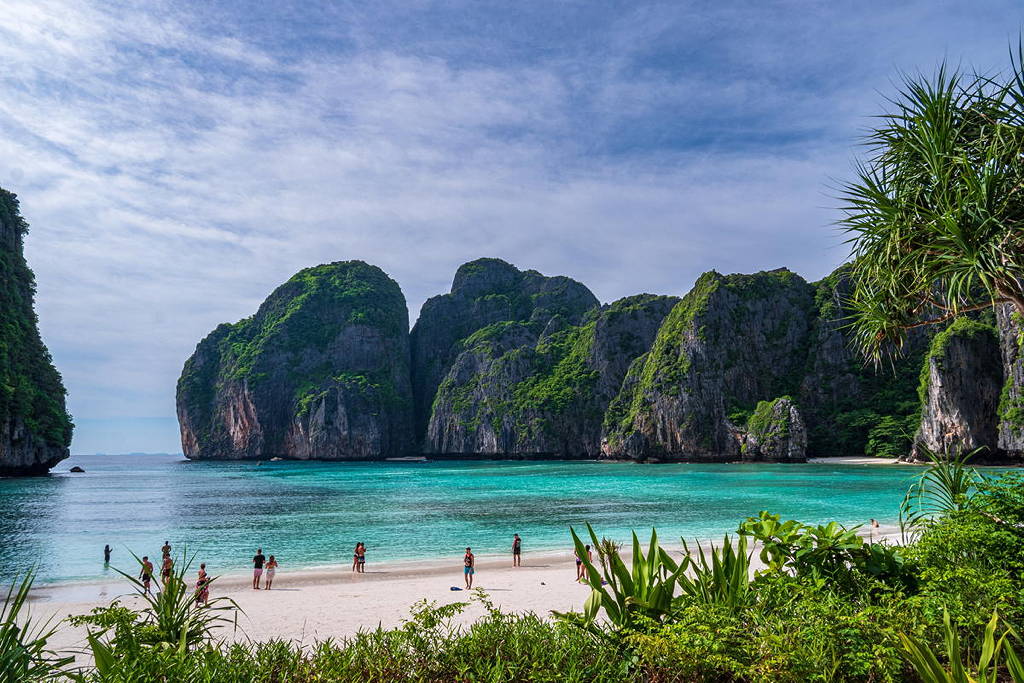
© Lucas Hemingway via Unsplash
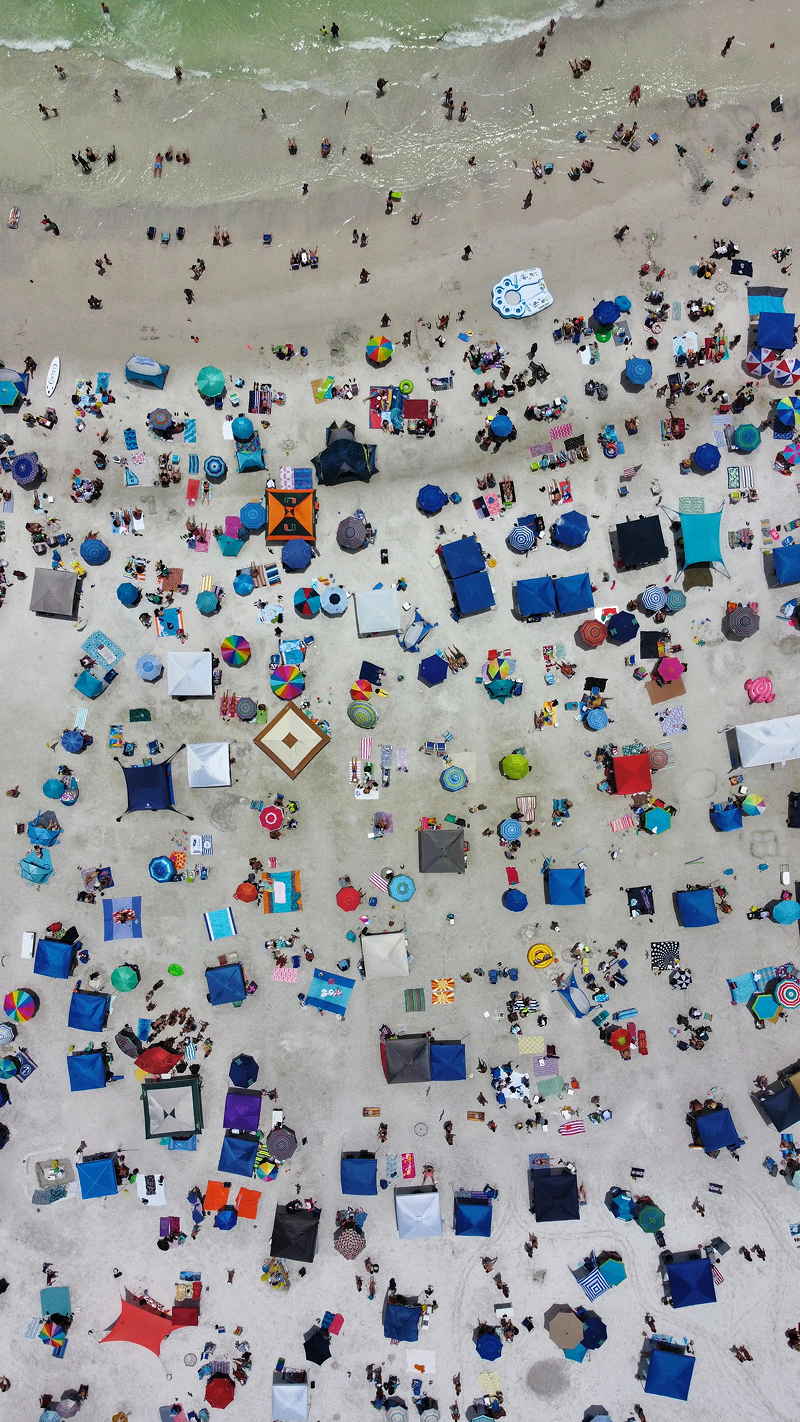
©Connor Anderson via Unsplash
THE PROBLEM WITH OVERTOURISM IN BEACHES
According to the World Tourism Organization, the post pandemic period is characterised by an increase in ‘staycations’ or travelling close to home. Despite the positive aspect it implies to reducing our carbon footprint, it could cause more crowded beaches. For example, over 50% of U.S. citizens choose a beach location for their holiday vacations (Statista, 2019). Beaches are delicate ecosystems with distinct challenges compared to urban settings. The book Overtourism: Lessons for a Better Future, edited by Martha Honey and Kelsey Frenkeil, outlines that “seaside towns are struggling with sand erosion, the loss of coral reefs, a plunge in marine life, algae blooms, and beached animals”. While the authors acknowledge the significant contribution of climate change, unregulated overflow of visitors affects the already fragile coastal environments the most.
Negative effects of overtourism in beaches do not come strictly from human presence itself, but rather a combination of factors. A study found that recreational use of Mediterranean islands accounts for 80% of marine littering in the area, making tourism one of the main sources of macro littering in beaches. Human activities like boats, jet-ski, other water sports and off-road driving can also induce stress to the ecosystem. Another human stressor involved is the overdevelopment of infrastructure such as hotels, resorts, or restaurants within proximity to the sea. Light and sound pollution can affect land and marine life nesting and feeding patterns. Putting all this together, we are saturating beaches with human activity.
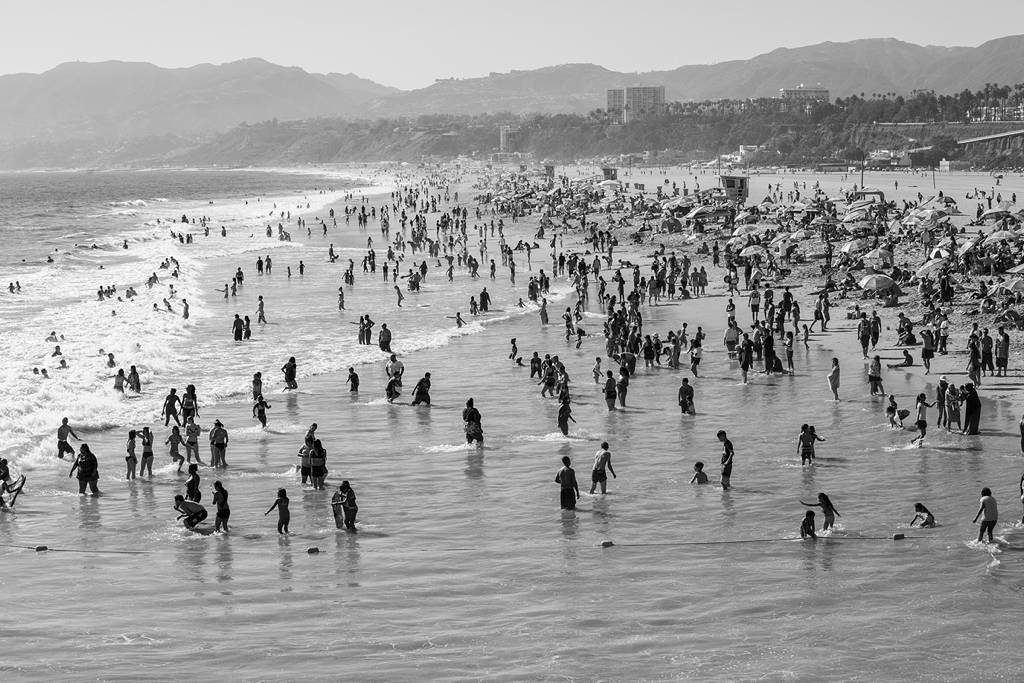
© Kenneth Williams via Unsplash
THERE IS STILL TIME TO CHANGE
During pandemic lockdowns, research found that beaches were rarely overcrowded and that the ecosystems exhibited a surprising capacity for regeneration despite the history of human intervention. The reduced stressors resulted in enhanced biodiversity, a better system functionality and generally healthier environment. Nature has the power to heal itself, what we can do is make its job easier.
Boracay in the Philippines is an exceptional example of a destination that experienced first-hand overtourism and managed to turn the situation around. Massive clean-ups and the demolition of illegal structures affecting the ecosystem happened on the island. New laws prohibit one-time plastics, and the community continues doing clean-ups and improving their sustainable practices. Furniture and other structures are also prohibited in beaches. Even hotels self-regulate themselves and keep watch of each other's eco-friendly practices through the Compliant Association of Boracay.
MORE BEACHES ARE IMPLEMENTING SUSTAINABLE CHANGES
Governments around the world are also taking measures to protect their beaches and residents. Sardinia, which has suffered from flooding crowds for years, imposed an entry fee to Pelosa Beach and requires visitors to bring mats instead of towels to trap less sand. Starting in mid-2024, Bali is set to charge a tax to address its expanding waste problems. Majorca is going beyond just taxes and taking the solution to the visitors’ phones with the app “Majorca Beaches”. This app provides updated information on beach congestion at different points in time, allowing tourists to plan their trips ahead of time and avoid overcrowding. Maya Bay went as far as closing the beach completely for four years and re-opening again in 2022 with new regulations, including a cap on daily visitors and boats on the bay.
Awareness about our impact on beaches is ever-growing. Many other locations around the world are learning from the existing example and devising their own solutions for sustainability. Four Mediterranean countries are even developing a framework that different beaches could recreate and use. The Green Beach model assists local authorities and beach operators in making informed decisions about sustainable management of beaches.
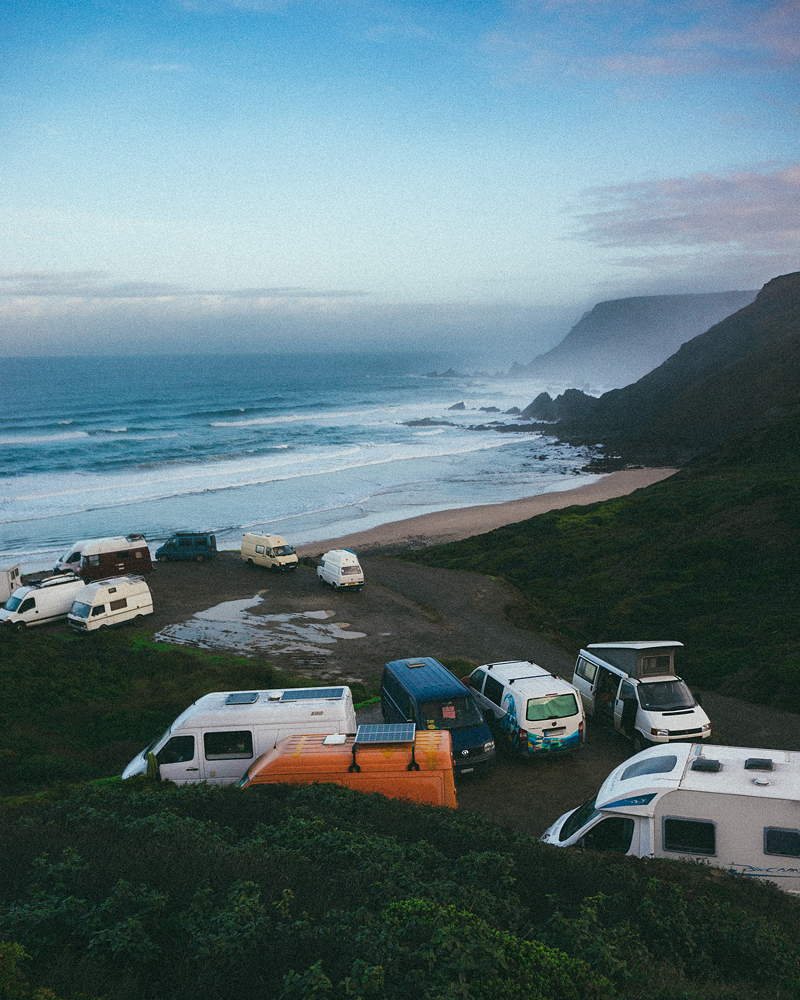
© Tobias Tullius via Unsplash
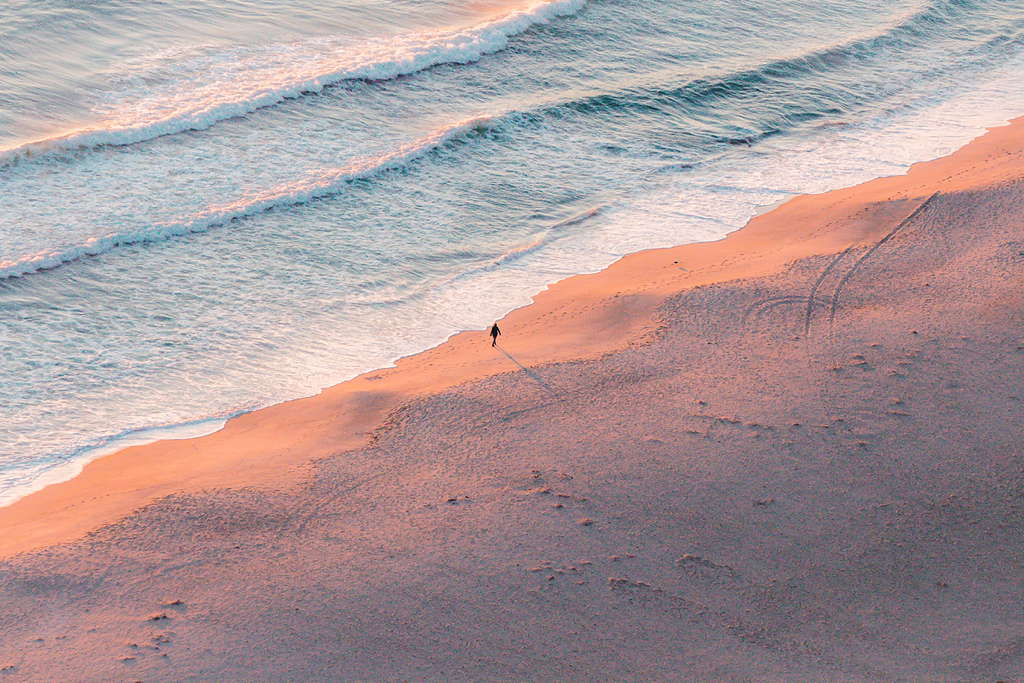
©SamWilliams via Unsplash
WHAT ELSE CAN WE DO AS RESPONSIBLE TOURISTS
There are so many beaches out there to discover that help us avoid saturated shorelines. While countries are working towards promoting lesser known locations, we can also do our own research to find unique beaches and indulge in the art of exploration.
When choosing accommodation, we can opt for eco-friendly hotels that ensure responsibility with the environment and the community. As mentioned earlier, resorts and hotels that are right on the shore can contribute to erosion and deterioration of the environment. Therefore, we should also aim to find accommodations further away from the coastline.
Even when visiting a crowded location, there are small steps we can take to minimise our impact. Bringing our own reusable utensils like water bottles can help reduce one-time plastics in beaches and we can also participate in more eco-friendly activities like kayaking over a jet-ski or speed boat. As beaches give us so many experiences and soothing feelings, we can also give back to it by getting involved in clean-ups or other projects to help the community. It does not have to be in a remote paradise across the Atlantic, it can be in your favourite local beach.
+ Highlight Image:
©Ethan Walsweer via Unsplash
+ Words:
Francesco Witt
Luxiders Magazine




